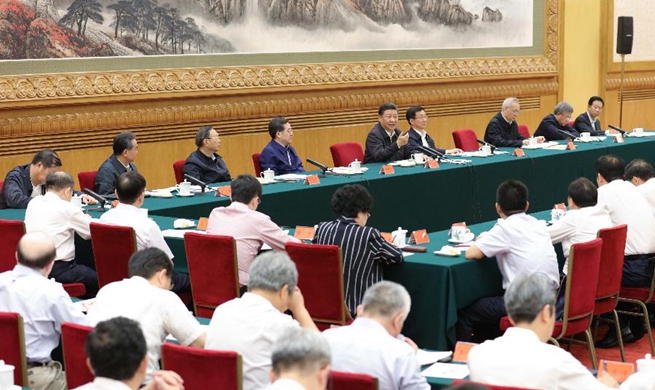BERLIN, Aug. 28 (Xinhua) -- German foreign minister Heiko Maas and his Irish counterpart Simon Coveney have issued a joint warning on Tuesday against a disorderly Brexit, or the withdrawal of Britain from the European Union (EU).
"We want an orderly Brexit, rather than a disorderly one," Maas told press after a meeting with Coveney in Berlin. "This is why we are doing everything in our power to secure an agreement (on the future EU-UK ties)," he added.
Similarly, Coveney said that a disorderly Brexit would "not be in anybody's interest." However, the Irish foreign minister stressed that there was only a small amount of time for negotiations left until London leaves the bloc in March 2019 and said that his country had hence already begun to draw up contingency plans for the worst-case scenario.
After Britain itself, Ireland is widely seen as the country which stands to suffer the greatest economic damage as a consequence of the British referendum decision to leave the EU.
A key sticking point in negotiations is the sensitive situation of the land border between the Republic of Ireland and the United Kingdom, an issue on which the British cabinet is also split internally.
Meanwhile, Brussels has shown no inclination of reneging on an earlier pledge to prevent the erection of an Irish land border and has told member states to begin preparing for a "no deal" outcome.
The German Federation of Industry (BDI) has argued that the United Kingdom would be best advised to emulate the quasi-EU membership models of Norway and Switzerland to avert material damage and protect the current rights which its own citizens enjoy throughout the EU.
Norway and Switzerland are both members of the EU Schengen travel area and customs union, abide by its four freedoms of goods, services, capital and people, and are subject to the jurisdiction of the European Court of Justice (CJEU).
So far, London has rejected proposals to opt for a similar arrangement on the grounds that voters had given the government a mandate to "take back control". British Prime Minister Theresa May has instead sought to persuade the EU to accept the vision for a vaguely-defined "bespoke agreement."













